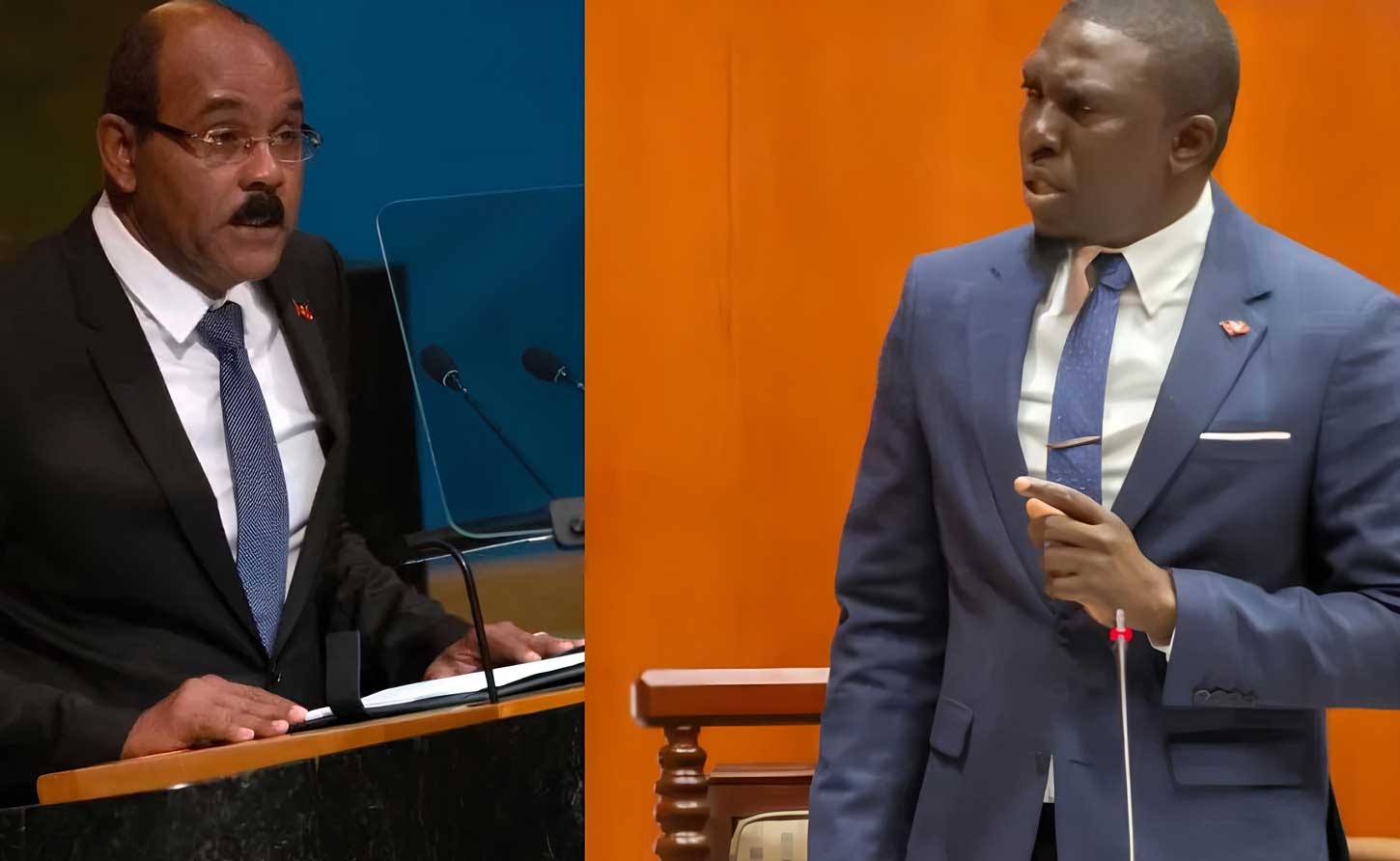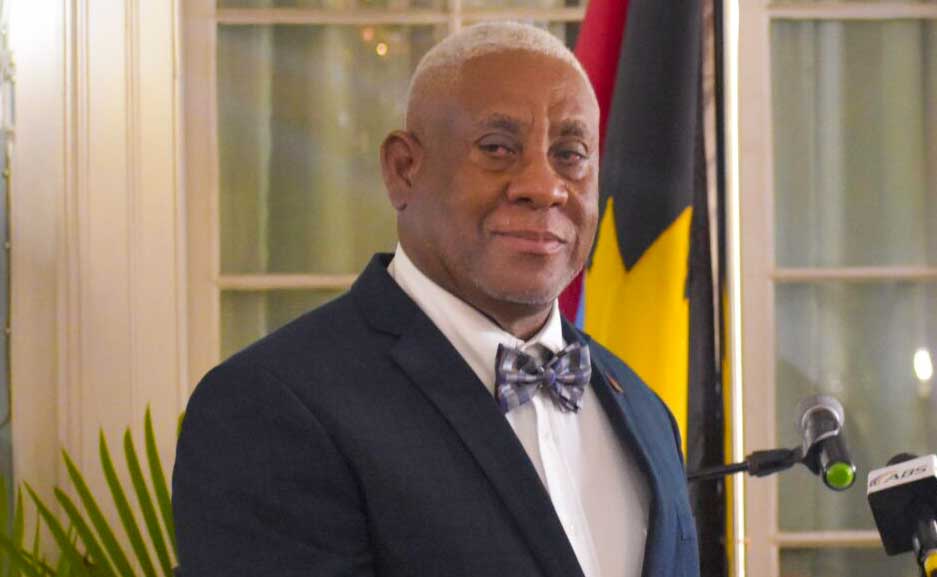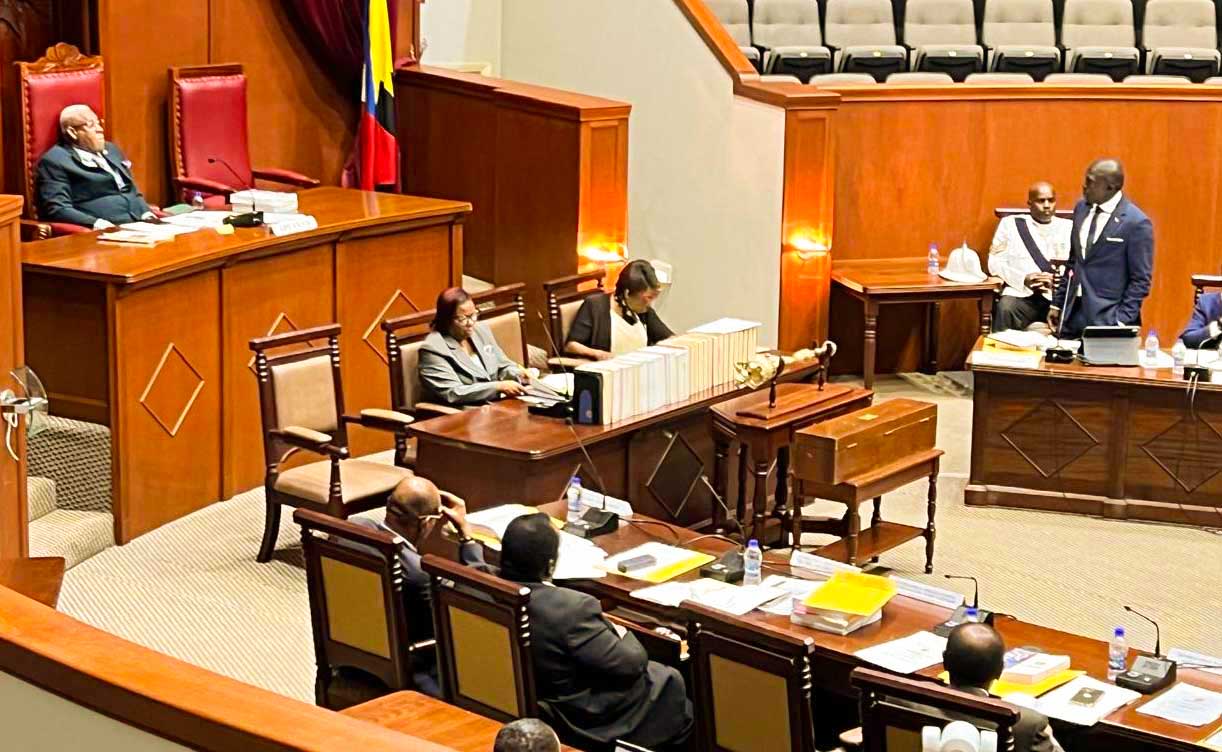ANTIGUA | Analysis: Parliamentary Crisis in Antigua and Barbuda's Budget Debate

ST. JOHN'S Antigua, December 18, 2024 - As one who is familiar with the presentation of national budgets in many of the British-influenced countries across the Caribbean, I was mortified at the premature and abrupt conclusion to the Antigua and Barbuda budget debate.
I was even more flabbergasted at the editorial comment by Antigua News writer Kieron Murdock who, in a blanket characterization, described it as an embarrassing and puerile display of unparliamentary conduct.
In a clearly partisan comment, Murdock who masqurades as an independent journalist, refused to squarely place the blame at the feet of a parliamentary unsure Speaker and a democratically loose and dictatorially inclined Prime Minister.
The recent presentation of the Estimates of Expenditure in Antigua and Barbuda's Budget debate has indeed left a bitter taste in parliamentary circles, not least due to its controversial conclusion after just two days. The handling of this crucial democratic process has raised serious questions about procedural integrity and parliamentary tradition.
The recent presentation of the Estimates of Expenditure in Antigua and Barbuda's Budget debate has left a bitter taste in parliamentary circles, not least due to its abrupt and controversial conclusion after just two days. The handling of this crucial democratic process has raised serious questions about procedural integrity and parliamentary tradition.
In established parliamentary practice, the choreography is clear: the Finance Minister's presentation is followed by the Opposition Leader's reply, setting the stage for detailed portfolio-by-portfolio discussions. Government ministers traditionally present their departmental plans, with shadow ministers offering their counterpoint – a democratic dance that ensures thorough scrutiny of the nation's fiscal roadmap.

The premature conclusion of the debate, orchestrated by the Prime Minister and unopposed by the Speaker, effectively silenced both government ministers and opposition members. This unprecedented curtailment of debate left portfolio presentations and opposition responses hanging in the air, a stark departure from the Westminster tradition.
Clearly, there was no structure given to the debate by the Speaker, who would in consultation with the Government and the Opposition should have outlined the date and time that the respective ministers and opposition counterparts should speak in the lower house.
This disruption of established parliamentary procedure raises concerns that extend far beyond mere protocol. At stake is the fundamental principle of democratic oversight, where both government and opposition play crucial roles in ensuring fiscal accountability. This deviation from standard practice threatens to set a troubling precedent in Antigua and Barbuda's legislative process.
Within the Westminster system, the budget debate serves as more than a procedural formality – it's a crucial mechanism for transparent governance. Each ministerial portfolio presentation typically provides a detailed roadmap of departmental spending, allowing for informed scrutiny and constructive criticism from the opposition benches. This process, when properly executed, ensures that public funds are allocated with appropriate oversight and accountability.
The rushed conclusion of this year's debate effectively short-circuited this essential democratic process. By preventing portfolio ministers from presenting their detailed plans and denying the opposition their right of reply, the government has inadvertently created an accountability gap in its financial planning process. This gap could have far-reaching implications for the implementation and monitoring of the national budget.
The precedent set by this abbreviated debate process threatens to undermine the very foundations of parliamentary democracy in Antigua and Barbuda. When established procedures are circumvented, it not only weakens immediate oversight but also risks normalizing a diminished form of parliamentary scrutiny that could persist well into the future.
The Speaker's role in this situation deserves particular scrutiny. As the guardian of parliamentary procedure and tradition, the Speaker bears responsibility for maintaining the delicate balance between government prerogative and opposition rights. The failure to uphold established debating protocols suggests either a misunderstanding of parliamentary tradition or an unwillingness to challenge executive overreach – neither of which serves the interests of democratic governance.
Perhaps most concerning is the lost opportunity for detailed financial examination. Each portfolio minister's presentation traditionally serves as a crucial window into departmental planning and fiscal responsibility. Without these presentations and their subsequent debate, the public is left with an incomplete picture of how their tax dollars will be spent and what outcomes they can expect from government programs.
The path to restoring proper parliamentary procedure requires both immediate action and long-term structural reforms. Standing Orders – the rules governing parliamentary proceedings – should be reviewed and potentially amended to explicitly prevent premature closure of budget debates. These amendments should clearly outline the sequence of presentations and responses, leaving no room for procedural manipulation.

Most critically, there must be recognition that a thorough budget debate serves not just parliamentary tradition but the nation's economic interests. When ministers can't present their portfolio plans and face opposition scrutiny, the quality of financial planning inevitably suffers. This isn't merely about political discourse – it's about ensuring every dollar in the national budget is properly justified and efficiently allocated.
The abrupt conclusion of this year's budget debate represents more than a procedural misstep – it stands as a cautionary tale about the fragility of democratic institutions. When parliamentary traditions that have evolved over centuries can be cast aside in a matter of hours, it highlights the urgent need for institutional safeguards that protect the deliberative process at the heart of democratic governance.
As Antigua and Barbuda navigates its path forward, the resolution of this parliamentary crisis must prioritize three key elements: the restoration of proper debate procedures, the strengthening of the Speaker's role as an independent arbiter, and the establishment of clear, enforceable guidelines for budget presentations. Without these reforms, the nation risks further erosion of its parliamentary traditions.
The ultimate test of a democracy lies not in its ability to avoid challenges but in how it responds to them. This controversial budget debate, while troubling, presents an opportunity for democratic renewal. By addressing these procedural shortcomings head-on, Antigua and Barbuda can emerge with stronger parliamentary institutions that better serve both current and future generations.
The stakes could not be higher. In an era where democratic institutions face unprecedented challenges globally, even small nations must stand firm in defending their parliamentary traditions. The eyes of the Commonwealth – and indeed, the democratic world – are watching to see how this crucial test of parliamentary democracy will be resolved.
-30-
